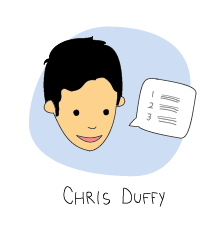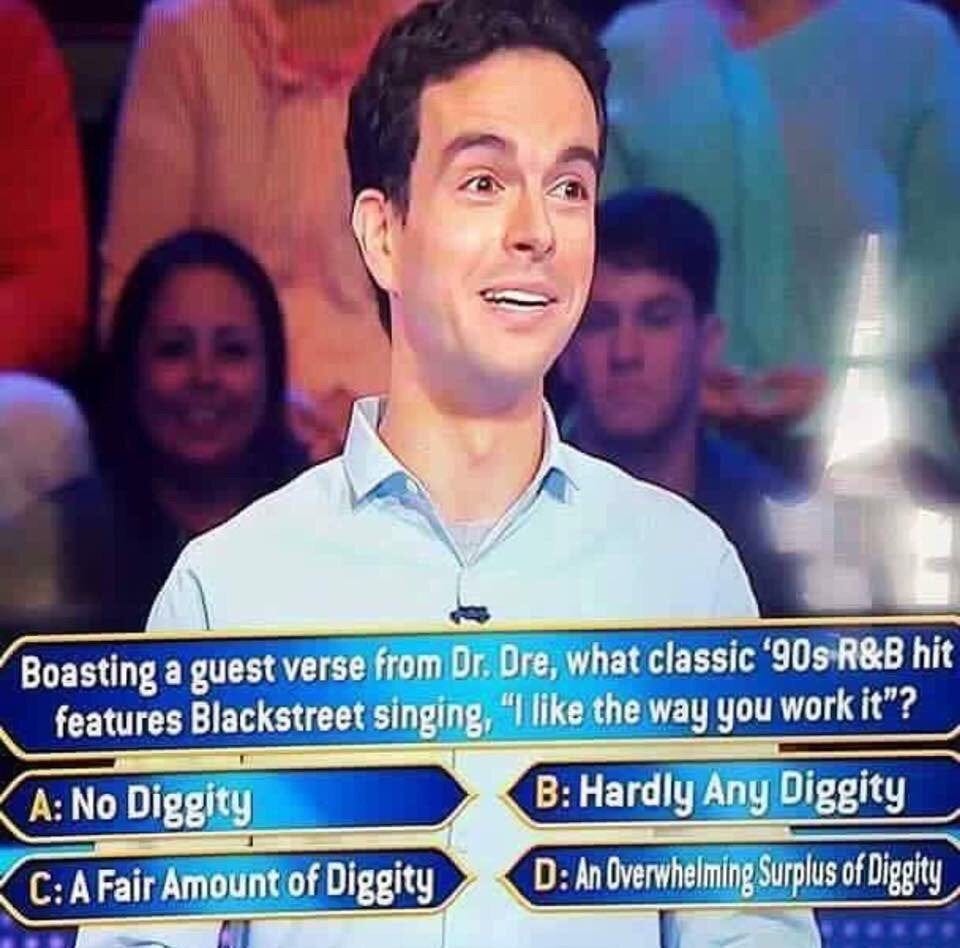How to Make Creative Projects (Without Already Being Rich)
Ways to fund your cool ideas that I've used (or seen friends use) over the years. Plus recs for Nick Cave and Colbert on hope, Eddie Small on kids menus, and the plant messiah.
Adam Mastroianni, in his excellent newsletter Experimental History, recently shared this list of microgrant programs that fund good ideas (with the disclaimer that it’s not all up-to-date).
There are so many helpful resources on there. Reading through the list got me thinking about the support systems I’ve been lucky enough to find. When I was first starting out in comedy, I found it so helpful to hear what artists had done early in their careers. I tore through episodes of Riki Lindhome’s Making It, read and re-read Anna Deveare Smith’s Letters to a Young Artist, and tried my best to follow Neil Gaiman’s advice to recent grads. In case it’s helpful to anyone, here’s what helped me get through those first years and build a creative career without already being rich:
Crowdfunding
Like a lot of people, I used Kickstarter to get the money for one of my first creative projects. My friend Brian Perry and I wanted to make a humor magazine. Brian’s a talented programmer and designer. At the time, the iPad was still kind of new and exciting. So we tried to make the first ever humor magazine for the iPad. We wanted the pieces to be funny but also interactive and use technology. And we wanted to pay all the writers and illustrators for their work. By getting a big group of people involved and excited, we managed to raise $16k. That was such a big victory! And I think the magazine was really funny and good! Unfortunately, it turns out that there’s a very limited audience for humor magazines you can only read on the iPad. Who knew? (Everyone else.) Brian and I weren’t willing to stop paying contributors for their work so the economics never made sense. After we published a year’s worth of issues, we had run out of the Kickstarter money and had to shut it down. Paperweight became a literal paperweight. The only trace of its existence is that I still get google alerts any time there’s big news in the world of weighing down papers.
Community Supported Arts Grants
Another idea I had was to do a comedy podcast, You’re the Expert, where comedians interviewed scientists about their work. Initially, I thought this was my nichest of niche ideas. But it turned out to be the project that struck a chord and laid the foundation for my career to date. To get You’re the Expert started, I needed to get an audio recorder, some microphones, and to pay my friend Kevin, an audio engineer, to record the shows for me. I couldn’t afford the gear on my own and didn’t feel like I could ask friends and family to contribute to another Kickstarter, but luckily I discovered a recurring event series called FEAST Massachusetts. FEAST stands for Funding Emerging Arts Sustainably Together. Basically, the way it worked was that every few months, a group of local artists would throw a big dinner party with a suggested donation of $15 at the door. A handful of artists would present ideas for a new project. Half of the money from the door would go to pay for the food and the other half would go to whoever got the most votes for their project. My presentation won and I took home about $700, if I recall correctly. It’s no exaggeration to say my entire comedy career is thanks to winning that vote. I also ate a delicious vegan salad / grain bowl.
Being a Game Show Contestant
This is the most outlandish of the ways I’ve funded my career, but it’s somehow worked for me. More than once! I was on Who Wants to Be a Millionaire and on The $100,000 Pyramid. I wrote a whole in-depth piece about how to get on a game show, but without going into the process, I’ll just say that it’s wild how many people in the comedy/improv worlds have been contestants. These shows are ALWAYS looking for new people to cast.
I only even realized it was a possibility after I worked up the courage to ask my friend Charlie how he’d been able to never have a day job and just work full-time on comedy/cartoons right away. Charlie very nonchalantly told me that the secret was that he had won $70k on Millionaire and using that to fill the gaps whenever his creative work didn’t pay the bills. My jaw dropped. It dropped again when I applied to be on the show and immediately got invited to take the written test at an office in Midtown Manhattan that felt like a cross between the DMV and an SAT testing facility.
Several months later, I took the train up to a tv studio in a random part of Connecticut where they also film several court-based reality shows. I followed the arrow for “contestants” (avoiding the other direction, which was labeled “plaintiffs”). Next thing I knew, I was playing for a life-changing amount of money. I did not win. After taxes, I took home $2,500 though! I was foiled by not knowing what NASCAR stood for. Ultimately, what lasted a lot longer than the money was the screenshot of my face on the show which became this meme:
Those are the three main ways I paid the bills at the beginning, other than working part-time jobs, taking every random short-term gig I could find, and starting to eke out a bit of money from comedy and podcasts.
I’ll also add that it’s a lot easier to live on less money when you’re younger, able-bodied, and don’t have any dependents. I was saving money back then in ways that I just couldn’t do now. For example, every time I needed to go between NYC and Boston for work, I would book a $1 ticket on the BoltBus by making sure I booked the instant the tickets became available online. And then I would sleep on a mattress on the floor of this creaky old house that my friends were living in while the owners were trying to figure out how to sell it and tear it down. Luxury!
At one point, I got a personal email from BoltBus asking me for my feedback on a proposed change to the NYC pickup location because I was “in the top 1% of BoltBus riders.” That was a real wakeup call that things needed to change. You do NOT want to be the most valuable customer on BoltBus, let me tell you that. One time, a BoltBus I was on broke down halfway through the trip and then the new BoltBus they sent to rescue us burst into flames. The company is bankrupt now. RIP.
Anyway, here’s that list of microgrants again. If it turns out that you end up getting funding for something awesome and become very successful, please hire me in the future.
My projects and upcoming events:
PODCAST: The Amber & Lacey, Lacey & Amber Show! - I was a guest on this podcast hosted by sisters Amber Ruffin and Lacey Lamar. They are so fun and so silly. It was the first time we’d met but from the first minute, I didn’t stop laughing. The episode is out now, if you’d like to listen! I Got Jug Envy w/ Chris Duffy
LIVE IN NYC: Wrong Answers Only at Symphony Space - Thursday, September 19th at 7 p.m. Tickets are on sale for this show where an expert on computer security gets interviewed by a panel of comics that includes me, Michael Cruz Kayne, and Ziwe! Details and tickets here
This week’s list
GREAT:
Nick Cave and Stephen Colbert are both famous for their talent as artists. Cave is a famous musician and Colbert is one of the most successful comedians of all time. But they’re also both intimately familiar with loss and sorrow. The way they both talk about tragedy (and how to live despite experiencing it) is something you almost never see coming out of a late night show. It’s remarkable. Here’s Cave answering a question about whether he still believes in human beings, despite everything. Nick Cave on Hope
FUNNY:
Eddie Small writes humor pieces for McSweeney’s that turn small, everyday, awkward moments into comedy gold. I went down a rabbit hole reading all his old stuff after coming across his most recent contribution, We Have Updated Our Children’s Menu Options to Better Reflect What We See Your Children Doing in Our Restaurant. Another one which I cannot tell you how deeply I relate to is about having someone over to fix something in your home: I Guess I Will Just Keep Standing Here While You Fix the Sink
INTERESTING:
“Carlos Magdalena, whose botanical adventures have shades of Indiana Jones, was a driving force in saving the world’s smallest water lily and finding the largest one. He has been called the ‘plant messiah.’” Reading this profile was a wild ride. It’s also a very cool story about how you don’t need to have gone to the fanciest schools (or even school at all) to make important and lasting contributions to science. Risking His Own Extinction to Rescue the Rarest of Flowers
BONUS FOR PAYING SUBSCRIBERS:
Paying subscribers make Bright Spots possible! Subscribers get access to special features as well as all posts in the archive. Paying subscribers also get my undying gratitude (which never dies). It’s never too late to join them!
That's it for this week. Thanks for reading! Please share Bright Spots with anyone you think might enjoy it.
Plaintiffs this way,
Chris Duffy
This has been Bright Spots, a newsletter.
…wait, who are you?
I'm Chris Duffy, a comedian, TV writer, podcast host, and both a former fifth grade teacher and a former fifth grade student. I’m currently writing a nonfiction book about humor for Doubleday.




I love the dinner plus small arts grant idea! Congratulations on winning, glad you got that $700!
I rode Bolt Bus too! And Greyhound and Peter Pan. Don’t think I ever made it to the top 1% though haha.